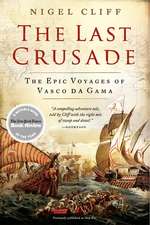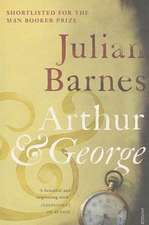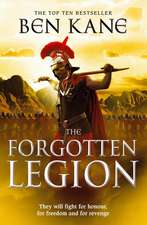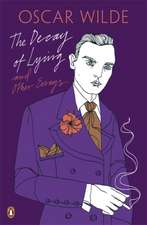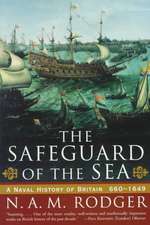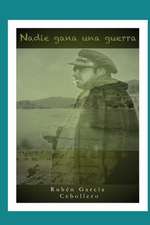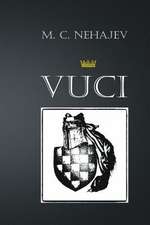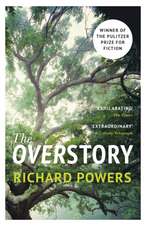Augustus: New York Review of Books
Autor John Williamsen Limba Engleză Paperback – 18 aug 2014
By the Author of "Stoner"
In "Augustus," his third great novel, John Williams took on an entirely new challenge, a historical narrative set in classical Rome, exploring the life of the founder of the Roman Empire. To tell the story, Williams turned to the epistolary novel, a genre that was new to him, transforming and transcending it just as he did the western in "Butcher s Crossing" and the campus novel in "Stoner." "Augustus" is the final triumph of a writer who has cometo be recognized around the world as an American master."
| Toate formatele și edițiile | Preț | Express |
|---|---|---|
| Paperback (2) | 53.91 lei 21-33 zile | +20.34 lei 6-12 zile |
| Random House – 6 feb 2003 | 53.91 lei 21-33 zile | +20.34 lei 6-12 zile |
| NEW YORK REVIEW OF BOOKS – 18 aug 2014 | 106.40 lei 3-5 săpt. | +17.87 lei 6-12 zile |
Preț: 106.40 lei
Nou
Puncte Express: 160
Preț estimativ în valută:
20.36€ • 21.26$ • 16.85£
20.36€ • 21.26$ • 16.85£
Carte disponibilă
Livrare economică 14-28 martie
Livrare express 27 februarie-05 martie pentru 27.86 lei
Preluare comenzi: 021 569.72.76
Specificații
ISBN-13: 9781590178218
ISBN-10: 1590178211
Pagini: 336
Dimensiuni: 132 x 203 x 23 mm
Greutate: 0.37 kg
Editura: NEW YORK REVIEW OF BOOKS
Colecția New York Review of Books
Seria New York Review of Books
ISBN-10: 1590178211
Pagini: 336
Dimensiuni: 132 x 203 x 23 mm
Greutate: 0.37 kg
Editura: NEW YORK REVIEW OF BOOKS
Colecția New York Review of Books
Seria New York Review of Books
Recenzii
""Augustus" is a masterpiece." -"Los Angeles Times"
"One is drawn deeply into a world whose complexity, luxury, political cynicism, public gullibility, and violence seem very much like our own." -"The New Yorker"
"Williams has immersed himself in ancient history, its figures, its conflicts, its complicated intrigues and its often primitive turmoil. In his vivid panorama, The Golden Age sparkles with an eloquence, at times, approaching the poetic." -"The Plain Dealer"
"Out of the events surrounding one of the pivotal moments in Western history . . . John Williams has fashioned an always engaging, psychologically convincing work of fiction." -"The New York Times"
""Augustus" is a vividly imagined re-creation of classical Rome, but its intuitive grasp of the experience of immense power makes it an unusual, and superior, novel." -"The Boston Globe"
"Novel or history, this is an excellent book. . . . a superior work of the imagination." -"Playboy"
"It would be easy to over-praise this novel; but there does not seem any adequate reason why this temptation should be resisted, especially as Mr. Williams in his turn resists the obvious one of allowing irony too prominent a part in the proceedings." -"The Economist"
"A pleasure to read. . . . A most polished performance." -"Boston Herald Traveler"
"Strong and striking. . . . Intelligent and intuitive, this excellent historical novel makes the world of Ancient Rome a place in which we feel instantly at home." -"Publishers Weekly"
"A novel of extraordinary range, yet of extraordinary minuteness, that manages never to sacrifice one quality for the other." -"The Financial Times"
"The finest historical novel ever written by an American." --"The Washington Post"
"[In "Augustus"] John Williams re-creates the Roman Empire from the death of Julius Caesar to the last days of Augustus, the machinations of the court, the Senate, and the people, from the sickly boy to the sickly man who almost dies during expeditions to what would seem to be the ruthless ruler. He uses an epistolary format, and in the end all these voices, like a collage, meld together around the main character . . . Read it in conjunction with Robert Graves's more flamboyant" I, Claudius" and Marguerite Yourcenar's "Memoirs of Hadrian."" --Harold Augenbraum, Executive Director of the National Book Foundation
"A novel of extraordinary range, yet of extraordinary minuteness, that manages never to sacrifice one quality for the other." --"Financial Times"
"Williams has fashioned an always engaging, psychologically convincing work of fiction--a consistent and well-realized portrait." --Thomas Lask, "The New York Times"
"Readers of both "Stoner" and "Butcher's Crossing" will here encounter an altogether new version of the John Williams they've come to know: "Augustus" is an epistolary novel set in classical Rome. It's a rare genius who can reinvent himself in his final work and earn high praise for doing so." --"The Millions"
""Augustus" is gripping, brimming with life." --Dan Piepenbring, "The Paris Review Daily"
" "
"One is drawn deeply into a world whose complexity, luxury, political cynicism, public gullibility, and violence seem very much like our own." -"The New Yorker"
"Williams has immersed himself in ancient history, its figures, its conflicts, its complicated intrigues and its often primitive turmoil. In his vivid panorama, The Golden Age sparkles with an eloquence, at times, approaching the poetic." -"The Plain Dealer"
"Out of the events surrounding one of the pivotal moments in Western history . . . John Williams has fashioned an always engaging, psychologically convincing work of fiction." -"The New York Times"
""Augustus" is a vividly imagined re-creation of classical Rome, but its intuitive grasp of the experience of immense power makes it an unusual, and superior, novel." -"The Boston Globe"
"Novel or history, this is an excellent book. . . . a superior work of the imagination." -"Playboy"
"It would be easy to over-praise this novel; but there does not seem any adequate reason why this temptation should be resisted, especially as Mr. Williams in his turn resists the obvious one of allowing irony too prominent a part in the proceedings." -"The Economist"
"A pleasure to read. . . . A most polished performance." -"Boston Herald Traveler"
"Strong and striking. . . . Intelligent and intuitive, this excellent historical novel makes the world of Ancient Rome a place in which we feel instantly at home." -"Publishers Weekly"
"A novel of extraordinary range, yet of extraordinary minuteness, that manages never to sacrifice one quality for the other." -"The Financial Times"
"The finest historical novel ever written by an American." --"The Washington Post"
"[In "Augustus"] John Williams re-creates the Roman Empire from the death of Julius Caesar to the last days of Augustus, the machinations of the court, the Senate, and the people, from the sickly boy to the sickly man who almost dies during expeditions to what would seem to be the ruthless ruler. He uses an epistolary format, and in the end all these voices, like a collage, meld together around the main character . . . Read it in conjunction with Robert Graves's more flamboyant" I, Claudius" and Marguerite Yourcenar's "Memoirs of Hadrian."" --Harold Augenbraum, Executive Director of the National Book Foundation
"A novel of extraordinary range, yet of extraordinary minuteness, that manages never to sacrifice one quality for the other." --"Financial Times"
"Williams has fashioned an always engaging, psychologically convincing work of fiction--a consistent and well-realized portrait." --Thomas Lask, "The New York Times"
"Readers of both "Stoner" and "Butcher's Crossing" will here encounter an altogether new version of the John Williams they've come to know: "Augustus" is an epistolary novel set in classical Rome. It's a rare genius who can reinvent himself in his final work and earn high praise for doing so." --"The Millions"
""Augustus" is gripping, brimming with life." --Dan Piepenbring, "The Paris Review Daily"
" "
Descriere
WINNER OF THE 1973 NATIONAL BOOK AWARD
By the Author of "Stoner"
In "Augustus," his third great novel, John Williams took on an entirely new challenge, a historical narrative set in classical Rome, exploring the life of the founder of the Roman Empire. To tell the story, Williams turned to the epistolary novel, a genre that was new to him, transforming and transcending it just as he did the western in "Butcher's Crossing" and the campus novel in "Stoner." "Augustus" is the final triumph of a writer who has come to be recognized around the world as an American master.
By the Author of "Stoner"
In "Augustus," his third great novel, John Williams took on an entirely new challenge, a historical narrative set in classical Rome, exploring the life of the founder of the Roman Empire. To tell the story, Williams turned to the epistolary novel, a genre that was new to him, transforming and transcending it just as he did the western in "Butcher's Crossing" and the campus novel in "Stoner." "Augustus" is the final triumph of a writer who has come to be recognized around the world as an American master.
Notă biografică
John Williams (1922-1994) was born and raised in northeast Texas. Despite a talent for writing and acting, Williams flunked out of a local junior college after his first year. He reluctantly joined the war effort, enlisting in the Army Air Corps, and managed to write a draft of his first novel while there. Once home, Williams found a small publisher for the novel and enrolled at the University of Denver, where he was eventually to receive both his B.A. and M.A., and where he was to return as an instructor in 1954.
He remained on the staff of the creative writing program at the University of Denver until his retirement in 1985. During these years, he was an active guest lecturer and writer, editing an anthology of English Renaissance poetry and publishing two volumes of his own poems, as well as three novels, "Butcher's Crossing," " Stoner," and the National Book Award-winning "Augustus" (all published as NYRB Classics).
Daniel Mendelsohn was born in 1960 and studied classics at the University of Virginia and at Princeton, where he received his doctorate. His essays and reviews appear regularly in "The New York Review of Books," "The""New Yorker," and "The New York Times Book Review." His books include "The Lost: A Search for Six of Six Million"; a memoir, "The Elusive Embrace"; and the collection "Waiting for the Barbarians: Essays from the Classics to Pop Culture," published by New York Review Books. He teaches at Bard College.
He remained on the staff of the creative writing program at the University of Denver until his retirement in 1985. During these years, he was an active guest lecturer and writer, editing an anthology of English Renaissance poetry and publishing two volumes of his own poems, as well as three novels, "Butcher's Crossing," " Stoner," and the National Book Award-winning "Augustus" (all published as NYRB Classics).
Daniel Mendelsohn was born in 1960 and studied classics at the University of Virginia and at Princeton, where he received his doctorate. His essays and reviews appear regularly in "The New York Review of Books," "The""New Yorker," and "The New York Times Book Review." His books include "The Lost: A Search for Six of Six Million"; a memoir, "The Elusive Embrace"; and the collection "Waiting for the Barbarians: Essays from the Classics to Pop Culture," published by New York Review Books. He teaches at Bard College.


